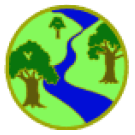Music
We aim to help children feel that they are musical and to develop a life-long love of music. We place an emphasis on developing the skills, knowledge and understanding that children need in order to become confident performers, composers and listeners.
Our music curriculum introduces children to music from all around the world and across generations, teaching children to respect and appreciate the music of all traditions and communities.
Children will develop a range of musical skills including singing, playing tuned and untuned instruments, improvising and composing music, and listening to and responding to music. They will also develop an understanding of the history and context of the music that they listen to and learn how music can be written down.
Our scheme of work fulfils the statutory requirements of the National Curriculum (2014). The National Curriculum for Music aims to ensure that all pupils:
- Perform, listen to, review and evaluate music across a range of historical periods, genres, styles and traditions, including the works of the great composers and musicians
- Learn to sing and to use their voices, to create and compose music on their own and with others, have the opportunity to learn a musical instrument, use technology appropriately and have the opportunity to progress to the next level of musical excellence
- Understand and explore how music is created, produced and communicated, including through the inter-related dimensions: pitch, duration, dynamics, tempo, timbre, texture, structure and appropriate musical notations.
From these aims, there are 5 key strands which run through our scheme of learning
- Performing
- Listening
- Composing
- History of music
- Inter-related dimensions of music
The inter-related dimensions of music are:
- Pulse
- Pitch
- Duration
- Dynamics
- Tempo
- Timbre
- Texture
- Structure
- Appropriate musical notation
Sometimes known as the elements of music, these are the building blocks of music and therefore run throughout our scheme of work as an overarching strand. We use Kapow Primary’s Music scheme which has been designed as a spiral curriculum with the following key principles in mind:
✓ Cyclical: Pupils return to the same skills and knowledge again and again during their time in primary school.
✓ Increasing depth: Each time a skill or area of knowledge is revisited it, is covered with greater depth.
✓ Prior knowledge: Upon returning to a skill, prior knowledge is utilised so pupils can build upon previous foundations, rather than starting again.
Model music curriculum
The DfE’s Model Music Curriculum 2021 states that: ‘In Years 3 or 4, it is recommended that each class should start a whole-class instrumental programme lasting a minimum of one term...Opportunities for development should continue beyond the mandatory term.’
At Dallimore, we use expert instrument teachers to deliver a 10-week unit of a variety of percussion instruments across lower key stage 2. These take place throughout the year. Additional lessons are offered in the form of afterschool clubs and children have the chance to learn an instrument through peripatetic music teachers who visit the school weekly.
Children in reception also experience a 10-week block of music tuition. ‘Musical Gems’ is delivered by a specialist from the music partnership and is based around listening, rhythm and repeating beats and lyrics (nursery rhymes and songs).
Long-term overview
The long-term overview maps out which units are taught and when. The * denotes the units in 3/4 that may be taught during a different point in the year since our instrument lessons are provided by an external music teacher to provide expert tuition.
Progression of skills
Our progression document provides an overview of the skills covered in each year group and strand and how these skills are developed through our Mixed-age Music scheme of work. The Inter-related dimensions of music is an overarching strand which runs throughout our scheme of work. We have highlighted skills which would also belong to this strand and provided a Progression of knowledge chart to show how knowledge builds in this area.
Knowledge organisers
Knowledge organisers provide a summary of our intent for each unit of learning. They detail the key tier 3 vocabulary that children will learn, alongside some key sticky knowledge.
Click on the image below to view an example music knowledge organiser.
Vocabulary overview
The vocabulary overview maps out the key tier 3 vocabulary taught to the children throughout their time at Dallimore. Please note, as we teach over a 2-year cycle, year 1/2 vocabulary will be taught over cycle A and cycle B and similarly, this will happen in year 3/4 and year 5/6.
Click on the image below to view the vocabulary document.
Staff subject knowledge
The Kapow primary scheme is an ideal driver for our music curriculum. It provides multiple teacher videos to develop subject knowledge and support ongoing CPD for each unit of learning. This supports the teacher to acquire and develop their own musical skills and knowledge.
Weekly singing assemblies
In addition to weekly music lessons in class, children have the opportunity to develop their singing skills during our weekly singing assemblies. A range of songs are sung which support the children with singing in tune, in time and singing as part of an ensemble.
Click the button below to view our Music 'subject on a page' document which summarises our curriculum intent and implementation.






